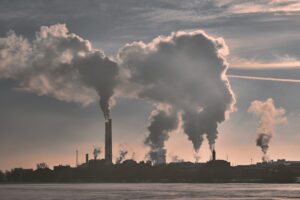Improving water quality won’t be enough to protect coral reefs such as Australia’s Great Barrier Reef from the threat of climate change, a new study has warned.
Academics from universities across Australia as well as the UK’s Lancaster University have investigated coral health across the Great Barrier Reef, which is increasingly subject to outflows of polluted water from rivers across coastal Queensland.
The study, published in the journal Nature, found that chronic exposure to poor quality water quality rate is affecting the recovery rates of corals in the Great Barrier Reef, slowly putting it under threat.
Dr. Aaron MacNeil, lead author of the study and an academic at Dalhousie University, said: ‘What we have found is that the Great Barrier Reef is an ecosystem dominated by runoff pollution, which has greatly reduced the resilience of corals to multiple disturbances, particularly among inshore areas.
‘These effects far outweigh other chronic disturbances, such as fishing, and exacerbate the damage done by crown-of-thorns starfish and coral disease.
‘Perhaps most critically, poor water quality reduced the rates at which coral cover recovers after disturbances by up to 25%. This shows that, by improving water quality, the rates of reef recovery can be enhanced.’
The team used a combination of advanced satellite imaging and coral monitoring across the Great Barrier Reef to conduct the study, which also looked at several potential climate change scenarios.
Coral reefs across the world such as the Great Barrier Reef and the UK’s Chagos Marine Reserve are more and more susceptible to coral bleaching caused by climate change, making recovery between disturbances more important.
However, the academics behind the study found that improving water quality will only go so far, as they found that no level of water quality improvement will allow current levels of coral cover to be maintained, an outcome which will have a knock-on effect on the reef tourism industry.
This has led the team to warn that there is no ‘silver bullet’ for addressing the threats facing the Great Barrier Reef, and the emphasis must remain on slowing climate change to ensure its survival.
‘Clearly, reducing river runoff can have beneficial effects on a wide range of reef corals and needs to continue,’ said Prof. Nick Graham of Lancaster University Environment Centre.
‘But for large areas of the reef that are unimpacted by water quality, we must reduce carbon emissions to slow down climate change. Without such action, the most striking and iconic parts of the reef will rapidly decline and become unrecognisable.’















